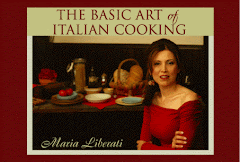
Junk food seems to be a problem that a lot of Americans are struggling with. According to the American Heart Association it has been stated that as of this date “50 million Americans have metabolic syndrome, a combination of health risks, such as high blood pressure and abdominal obesity.” These findings are a reason why it is very important for everyone to be more cautious about their health and their eating habits. Simple things such as replacing less healthy snacks such as chips or certain types of crackers with nuts can be very beneficial and favorable in seeing results and change in your diet. The key to solving this crisis would be to find a way in reversing the way people think and eat when it comes to food. By simply sticking to a healthy lifestyle instead of a so-called diet could be the answer. A lot of individuals freak out or feel discouraged when they hear the word ‘diet’ because it’s very hard to fall off the wagon and lose track of your life these days. The Mediterranean diet makes this easy, it’s more so a guideline than a frightening diet. Another great thing about nuts is that including the benefits it also helps individuals feel full “while also increasing the body’s ability to burn fat.” The anti-inflammatory
substances and antioxidants that are contained nuts help make them to be as beneficial as they are. The healthy fat that nuts contain also help to “lower blood triglycerides” and therefore enables us to “increase good cholesterol.” On the left I included a diagram that I found in the MSNBC article published by the Associated Press. The diagram basically shows results from a study that conducted on 1200 Spaniards located in the Mediterranean region that ranged from the ages of 55 to 80. The study followed the individuals and made sure they followed a specific diet for an entire year. To make the study helpful in understanding what they were trying to find, they made sure that all of the participants did not have prior history to heart disease, though some of the participants did have risk factors which included “Type 2 diabetes, high blood pressure and abdominal obesity.” The fact that the individuals were risk factors, made this study even more important; that way we could really get down to the basics and find out how beneficial nuts really are to individuals that are risk for these health problems. The three diets that were studied are shown in the diagram with the results showing the difference in their risk factors from when they started the study to when they concluded a year later:
“The low-fat group was given basic advice about reducing all fat in their diets. Another group ate a Mediterranean diet with extra nuts. The third group ate a Mediterranean diet and was told to make sure they ate more than four tablespoons of olive oil a day.”
For all of the individuals that were on the Mediterranean diet they were advised to use olive oil when cooking their food, increase their appetite for fruit, vegetables and fish and other guidelines that the Mediterranean diet follows. All those that were drinkers were advised to drink red wine instead of other alcohol choices. As seen in the diagram, after on year all three groups were able to see some sort of improvement. I hope studies such as these give you the courage to start focusing more on your health and to make others aware of their health as well. Just making a few changes can really go a long way, take a look below for more interesting facts about nuts:
Just a Reminder on some Interesting Facts about Nuts:
• Including nuts into your diet in moderation can actually slim you down
• Peanuts are in the same family as beans and peas therefore they are technically legumes
• Nuts can also be categorized under the same food group as ‘protein’ due to the classification of being a legume
• The fats found in nuts are not technically bad for you; Omega-3 fatty acids found in nuts provide “cardiovascular protection and lower ‘bad’ cholesterol.”
• Nuts are good sources of B vitamins
Reference:
[1] The Associated Press. “A nutty diet may cut heart disease risk.” Msnbc, 8 . 2008.
[2] Collins, Rebecca. Ezine Articles, 2008


